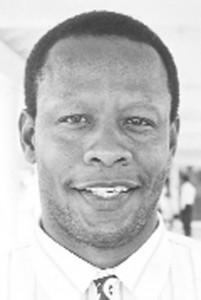Media practitioner Enrico Woolford said the broadcast spectrum in the country needs to be more open and viewed as an economic frontier that can be exploited, as opposed to a general medium where political influence is of key concern.

There is little encouragement for investment in the sector, Woolford said, pointing to what he believes are the political perceptions that follow any sort of interest shown in local broadcasting. But, citing the recent ruling of Acting Chief Justice Ian Chang, he said the climate in local broadcasting appears to be shifting to a more available, open space.
“ …The problem we have had in this country for years is that people who know about the electromagnetic spectrum or want to be part of it, are perceived to be on the wrong side of the political spectrum,” Woolford stated.
Woolford, who is the Editor-in-Chief at Capitol News, manages his own broadcasting company- EMW Communications. He told Stabroek News in a recent interview that his company had been assigned a television station back in 1997, but no move was made to commence transmitting because of the absence of the relevant legislation.
The National Frequency Management Unit (NFMU) had assigned Channel 34 on the UHF frequency to Woolford for the purpose of broadcasting in the Georgetown area. Woolford said the assignment of the station should still be on the books, and he intends to go on the air in the near future to broadcast in the city as well as extend the service to Linden provided that Justice Chang’s ruling stands.
Justice Chang ruled last week that government has a constitutional duty to deal with applications efficiently, although no applicant has an absolute right to a licence to operate a radio or TV station. He held that Region Ten residents had been hindered in their enjoyment of freedom of expression under Article 146 and he declared that upon the furnishing of the relevant information by the applicants in the instant case for licences the government should “forthwith” consider their applications under the current law.
According to Woolford, the Acting Chief Justice understands clearly the need for the country as a whole to have other avenues; openings that allow for access to other information. He said what Justice Chang has done is to point out to all of Guyana and to the Caribbean region that “we must move forward and open our spectrum so that other views, other issues can be discussed”.
He opined that each community in the society should be able to receive and impart information that was not necessarily government information, particularly those that are south of the coast. He said that when he joined the Joint Committee for Radio Monopoly and State Boards, there was a meeting of minds on the issue – for there was need for more television channels and that radio needs to be open as well as regulated. Woolford said the country desperately needs radio stations, adding that the current telecommunication act should be broadened to address the provision of cable services and others such as optimum online.
On the issue of broadcast legislation, he said broadcasters had articulated mainly one problem- that the Minister of Communication, who is the President, has too much power. He said there is need for a National Broadcast Authority as constituted by Parliament and for current broadcasters to work towards getting copyright legislation in place.
Further, he said that television also needed to be opened since the local content is largely news and current affairs, but it is mostly pirated television.
“There is no avenue where the work of our writers and artists can be put on the air, the available space is just not there and it does not necessarily mean that we are going to discuss political issues,” he said.
According to him, it would be a pity if this ruling of Justice Chang is eventually thrown out the door.





